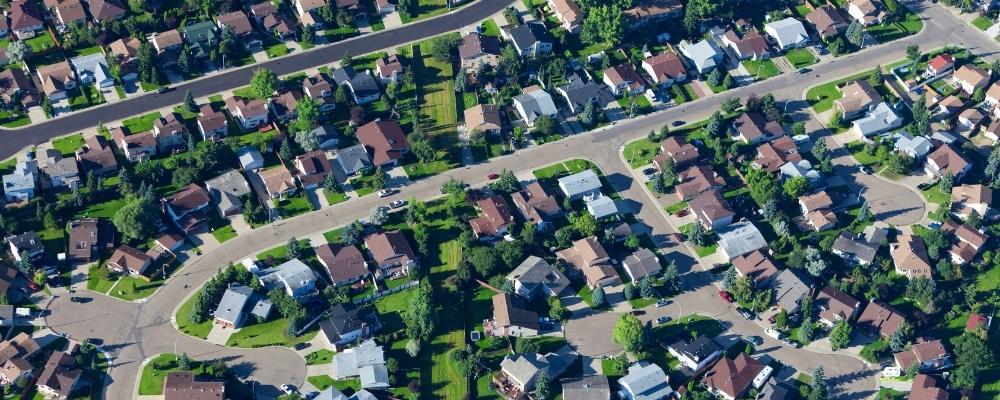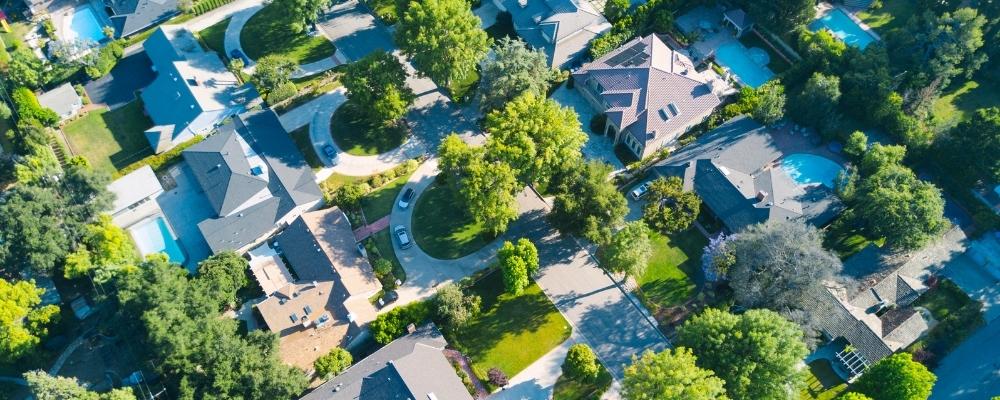Many people believe that you need money in the bank or good credit to get into real estate investing. But there is a technique that allows you to earn sizeable fees without ever purchasing property or taking out a loan.
This technique is called wholesaling real estate and involves finding potential deals on behalf of another investor. Here is a closer look at the concept and how wholesaling real estate really works.
How Does Real Estate Wholesaling Work?
Real estate wholesaling is the practice of finding distressed properties and getting them under contract at a certain price. You then turn around and flip that contract to a buyer for a higher price – who is typically an investor that will renovate it for sale. If done correctly, the wholesaler can collect a fee equal to the difference between the original purchase price and the price paid by the investor.
Using a special wholesale real estate contract, the wholesaler is able to transfer the ownership of the property without ever having to purchase it. This offers the potential for sizeable gains without a good credit score or money for a down payment. Wholesaling certainly isn’t easy, but it likely isn’t as difficult as you might think. Here are the basic steps to finding a wholesale deal.
What is the Process of Wholesaling Real Estate?
Step 1: Find a Property:
The first step is to find a property to wholesale. You’ll need to get the property under contract for a discounted price, which means you’ll want to look for motivated sellers. Motivated sellers are homeowners who are looking to sell quickly either because they are in foreclosure or because they’ve recently gone through a major life event, such as a divorce or death in the family.
Motivated sellers are the most likely to sell their homes at a price that is below market value, which is essential if you want to make money on the wholesale deal. You can find motivated sellers by posting signs, sending direct mail, or checking public records for bankruptcies, tax liens, or foreclosures. You can also leverage your personal network or try to find the owners of any abandoned homes in your area. You’ll have to develop your own system to be successful, but there are several methods for finding leads you may consider.
Step 2: Make an Offer:
Once you’ve found a suitable property, you’ll want to make an offer. The key is to get the property under contract for a lower price that allows you to sell it to an investor and still make a profit. While you can sell the property to anyone willing to buy, chances are it will need renovation to sell at market value. So, if you’re not able to do the rehabbing yourself, you’ll want to sell it to an investor who will do the work and sell it to a home buyer for a profit.
Many investors use the 70% rule – which means they will look for properties being sold for 30% below market value or more. This gives them a healthy margin to pay for repairs and still turn a profit. So, if you can get a property under contract for less than 70% of the after-repair value (AVR), you can likely find real estate investors willing to pay a fee to save time getting the property under contract. But if you go higher than 70%, you may struggle to find a buyer.
Say you find a property that would be worth $250,000 in good condition. If you can manage to get it under contract for $170,000, you could turn around and sell it for $175,000 and pocket the difference as a wholesale fee.
Step 3: Get the Property Under Contract:
Once you get the seller to agree to a price that works for your bottom line, you’ll need to get it under contract. There are several ways that you can structure the deal, which will vary depending on your real estate investing strategy. For instance, you could do an assignment of contract, which means you assign the responsibilities in the purchase contract to the end buyer. Or you could do a double closing, which involves holding two separate closings with both the buyer and seller.
However you decide to approach the deal, you’ll have to get the seller to agree to let you flip the contract to someone else. So it’s essential that you let them know that you aren’t actually the one purchasing the property, but are working on behalf of an investor or a partner. Otherwise, they may be confused by the process.
Step 4: Sell That Contract to a Buyer:
After you get the property under contract, it’s time to find a buyer. It‘s wise to have a solid buyers list already collected before you even start looking for properties. You’ll want to minimize the amount of time between when you get a property under contract and when you sell it to the end buyer, so you don’t face complications or miss out on the deal. Wholesale contracts do expire, so you don’t want to take too long looking for potential buyers.
If possible, try to establish a relationship with a single investor or group of flippers and find out what kind of properties may be interested in buying. Even if you don’t come to an exact agreement, you should at least get the names and business cards of local real estate investors in your area. You can find investors by calling real estate agents, attending community real estate events, searching on social media, or calling cash buyers who advertise in the area. The longer your buyer‘s list, the easier it will be to close the deal when the time comes.
Step 5: Close on the Deal:
Once you find a potential buyer, all that‘s left to do is close the sale. The closing will typically be pretty straightforward. You don’t have to make a downpayment or pay any closing costs, all you have to do is make sure both the seller and the end buyer sign the correct contracts and the process goes smoothly without any obstacles.
If done correctly, you can typically close on a wholesale real estate deal within 30 days or less from the time the seller accepts your offer, allowing you to walk away with a four or even five-figure check for simply acting as a middleman in the real estate transaction. But you’ll have to be patient and do your due diligence to avoid wasting time or making mistakes.
Wholesaling Tips for Beginners

Wholesaling is a great strategy for beginners because you don’t need any prior experience in the real estate industry or a real estate license, just hard work and determination. But it isn’t a skill you can master overnight, so here are a few tips to help you get started.
- Study the Local Real Estate Market: Before you start actively looking for properties, be sure to study the local real estate market when you’re planning your search. Having a good understanding of the demographic trends, price points, zoning laws, and other relevant housing data will make it easier to find wholesale properties worth going after and help you determine a fair offer price.
- Find Partners and Mentors in the Real Estate Industry: Whether you’re completely new to real estate or you have a thorough understanding of the business, it’s important to have partners you trust. You’ll inevitably face obstacles or have questions that need to be answered. Plus, you may need help from a realtor or attorney to close the deal. So, before you dive in, it’s wise to develop a solid support system to help you overcome any problems.
- Create a System: If you want to build a profitable wholesaling business, you’ll need to create a solid system that works for you. This includes a system for finding leads, developing your buyer‘s list, closing the deal, and following up on referrals. You may need to experiment with a variety of methods before you find a process that works. But the more organized and efficient you are, the greater your chances of success.
- Don’t Be Overly Aggressive: It’s important to avoid being overly aggressive with motivated sellers or you may scare them away. No one sells their home for a major discount unless they’re going through some tough times – whether that’s financially or in their personal lives. So it’s important to have a gentle touch when approaching sellers, otherwise, they may think you’re trying to exploit or rip them off. Instead, be empathetic to their situation and let them know you are offering a solution, not trying to take advantage.
- Study the Local Real Estate Market
- Find Partners and Mentors in the Real Estate Industry
- Create a System
- Don’t Be Overly Aggressive
Wholesaling Mistakes to Avoid
- Poor Due Diligence: Doing your due diligence means crunching the numbers and examining the deal from every possible angle to avoid mistakes. Any miscalculation or accounting error will come out of your end. For instance, if you’re projected ARV of the property is overinflated, it will decrease your potential fee. Or if you make an offer on a property in a bad neighborhood, you may struggle to find a buyer. So it’s important to do your research and ensure all the numbers are healthy and accurate.
- Not Studying Local Real Estate Law: Before you begin looking for properties, it’s important to study the local real estate wholesaling laws. While wholesaling is legal, there are certain behaviors related to wholesaling that are prohibited. For instance, wholesalers are not allowed to market properties without a real estate license, they can only assign them to a buyer. So before you start working, it’s important to know what you can and can’t do.
- Not Being Proactive with Finding a Buyer: Don’t wait until you already have a property under contract to start looking for buyers. Depending on where you live, it may take several months or even years to build a solid buyers’ list. So it’s important to do that work ahead of time, so you’re prepared when you find a great deal. You don‘t necessarily have to have a specific buyer locked down before you make an offer. But having a solid pool of potential candidates will make your job much easier compared to scrambling to find someone at the last minute.
- Working in a Market You Don’t Understand: To be a successful wholesaler, you must have a thorough understanding of the market you’re working in. It doesn’t necessarily have to be the area where you live – in fact, many successful wholesalers use technology to locate properties in other parts of the country and wholesale remotely. But if you’re a beginner, wholesaling houses in your local area is probably the safest place to start. No matter where you choose to look for deals, it’s important to study the local market so you know how to identify deals and make sensible offers.
- Poor Due Diligence
- Not Studying Local Real Estate Law
- Not Being Proactive with Finding a Buyer
- Working in a Market You Don’t Understand
Is Wholesaling a Good Way to Make Money?
Yes, wholesaling is a great short-term real estate investing strategy that offers lower risk than flipping houses or buying a rental property but the potential to earn large fees. However, that doesn’t mean it’s easy. Wholesaling can be hard work and may take several failed attempts to fully master.
You’ll likely face a lot of rejection along the way and will have to be patient to close a deal. Wholesaling is a great way to learn about the real estate business and earn sizeable fees without ever putting money in escrow. But, it isn’t a reliable source of cash unless you’ve been in the business for a long time and have a consistent pipeline of leads.
So, while it makes a great business for those who are interested in real estate and want to make some extra cash on the side, it may not be a reliable replacement for your 9-5 job.
But if you are patient and learn from any mistakes, the profit margins on a wholesale deal can be quite high. Most wholesalers make about $5,000-$10,000 per deal, with more experienced wholesalers earning as much as $50,000+.
Most wholesalers make about $5,000-$10,000 per deal, with more experienced wholesalers earning as much as $50,000+.
Is Real Estate Wholesaling Worth It?

It all depends on what you’re looking to get out of the experience. If you are looking to get into real estate investing but don’t have the upfront cash to flip a house or buy an investment property, wholesaling is a great place to start. It can help you learn the business while saving some of your fees for the down payment on an investment property. Plus, it will help you build a solid network that will help you scale up your real estate business in the future.
But if you are looking for a get-rich-quick scheme or an easy way to make fast money, then wholesaling may not be worth it. While you can earn sizeable fees in a relatively short amount of time, it often takes months or even years of hard work to get there. You have to take things step-by-step if you want to build a system that will help you see consistent returns, which requires patience and determination.
So is wholesaling real estate worth it? Yes, wholesaling can be a lucrative skill if you have the right mindset. But it isn’t always easy money, so be prepared to face challenges and work hard to succeed.

Author Bio: Ryan Zomorodi is one of the co-founders of Real Estate Skills. Despite landing a job at Fortune 50 company, Ryan quickly realized that the traditional corporate ladder wasn’t for him.
After engaging in a journey of self-discovery, Ryan realized that the way to achieve his financial goals was through owning his own business and investing in real estate.

